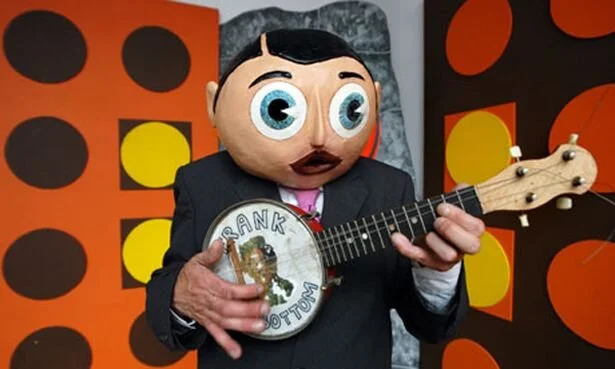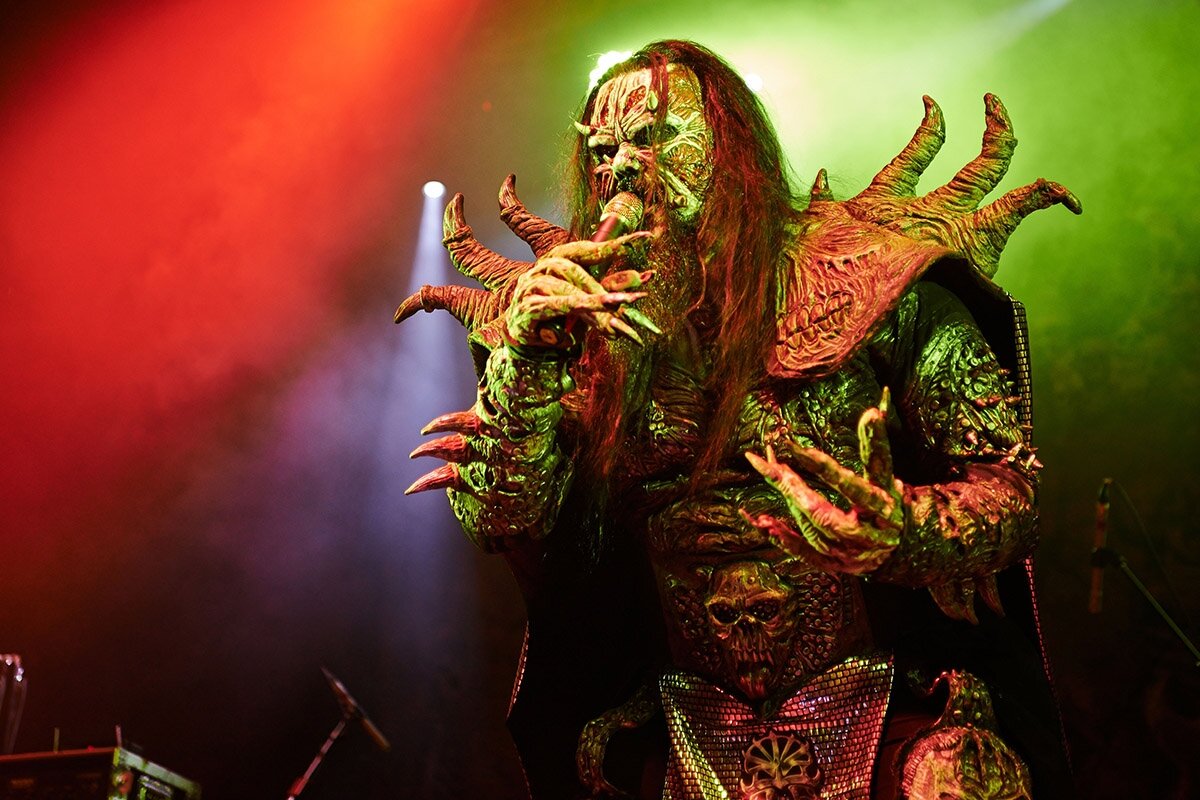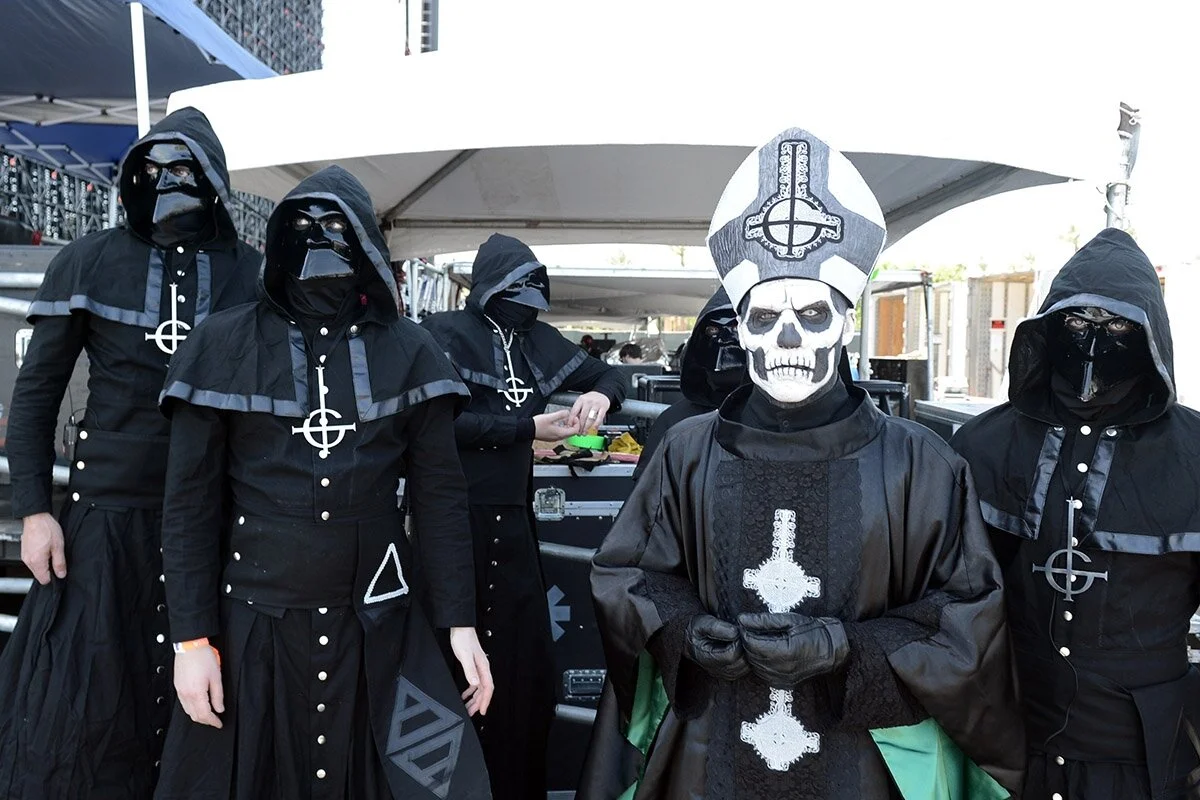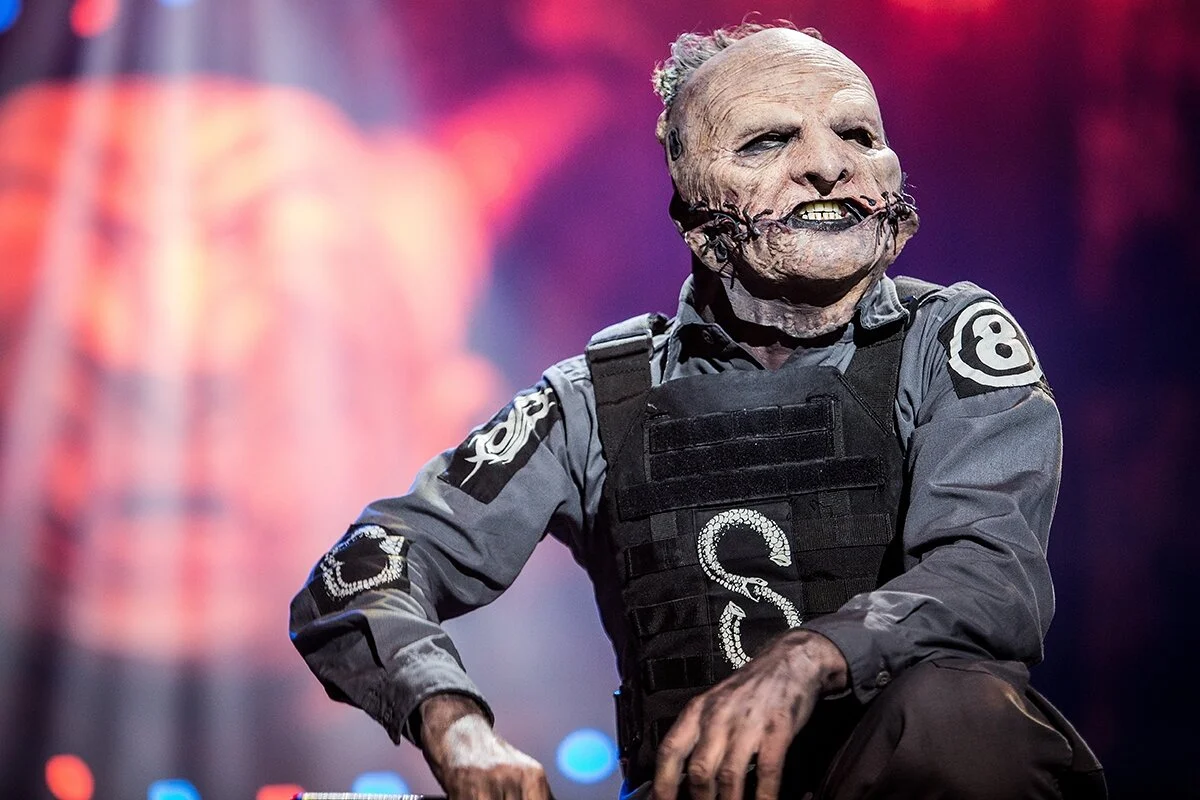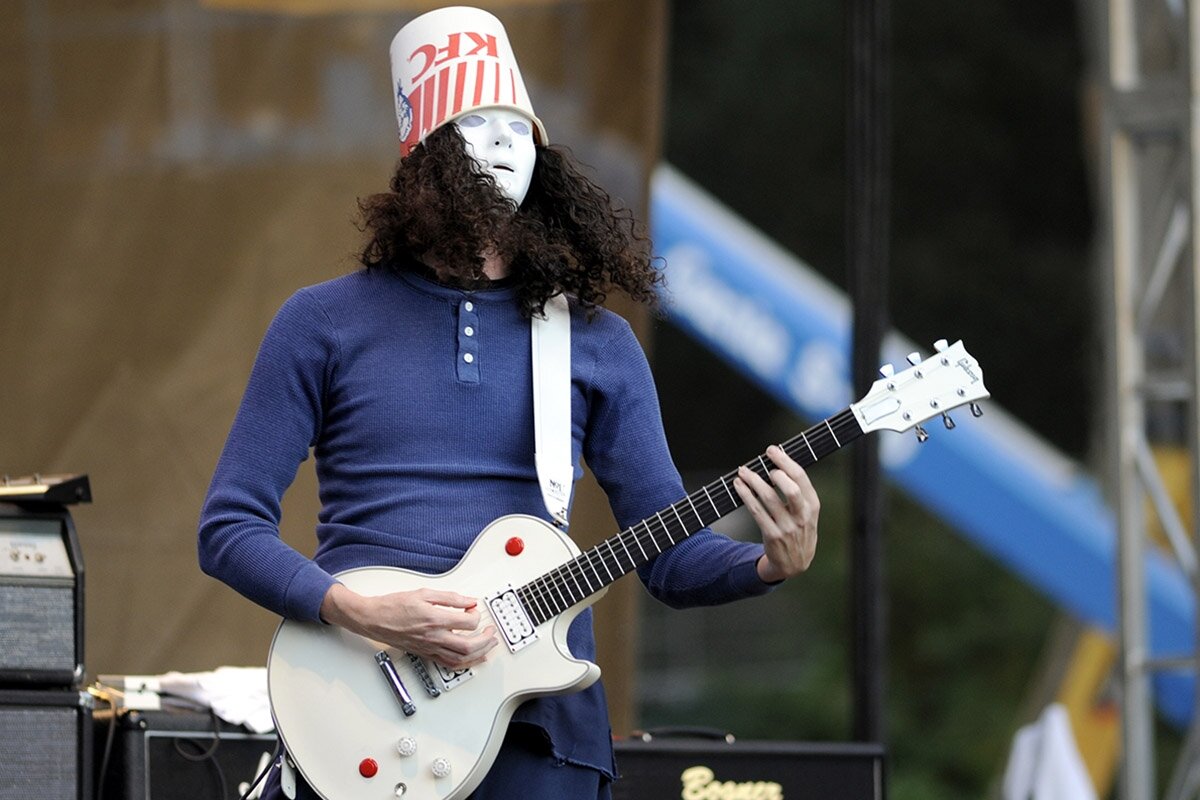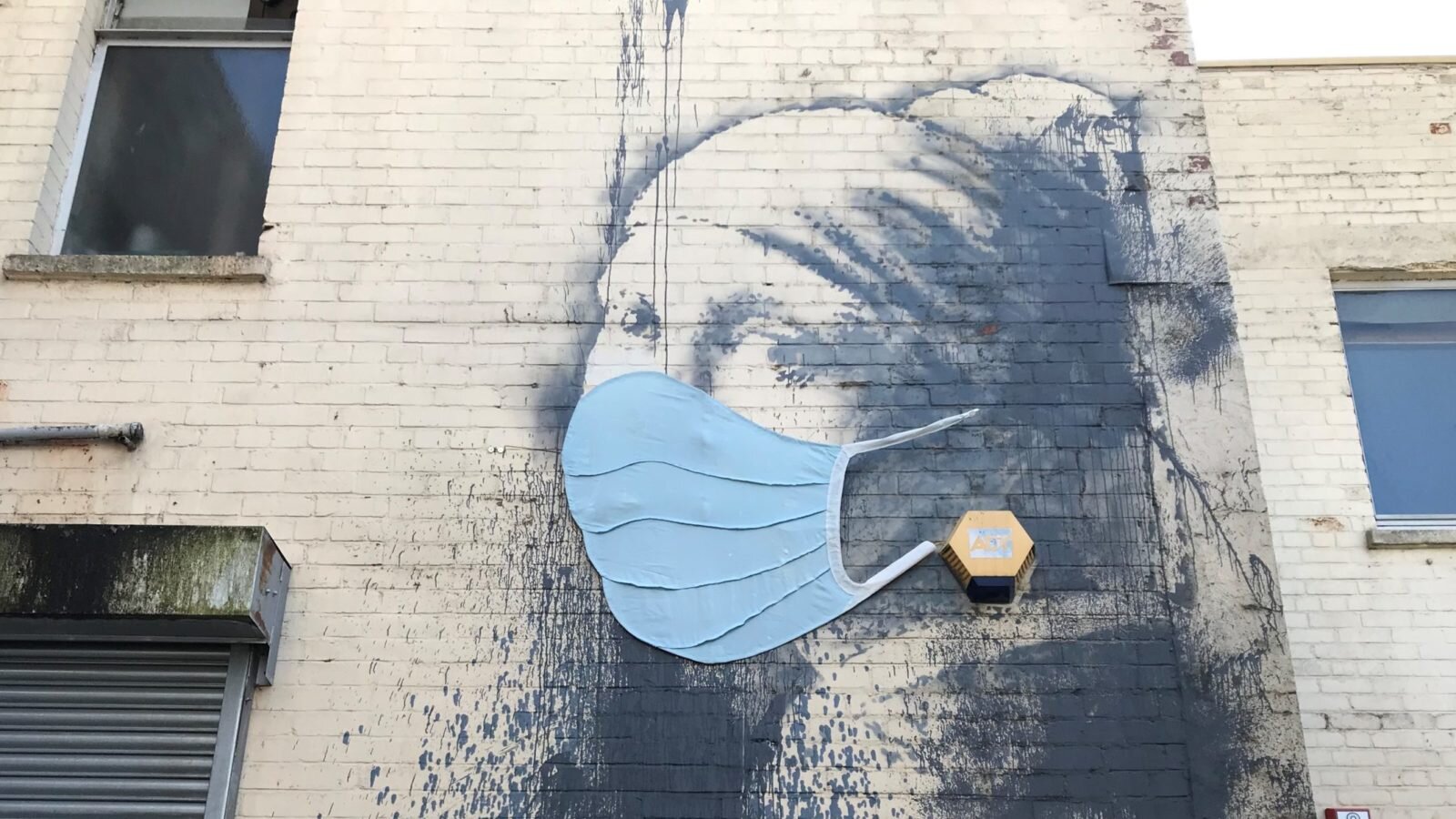By The Landlord
”Writing is both mask and unveiling.” – E. B. White
“Every face is born with a thousand masks to go with it.” – Marty Rubin
"Life is a mask through which the universe expresses itself." – Frank Herbert
“Man is least himself when he talks in his own person. Give him a mask, and he will tell you the truth.” – Oscar Wilde
“2020 was the year of masks.” – Steven Magee
“A charm invests a face
Imperfectly beheld, –
The lady dare not lift her veil
For fear it be dispelled.
But peers beyond her mesh,
And wishes, and denies, –
Lest interview annul a want
That image satisfies.” – Emily Dickinson
“For those of you who’ve not seen him Little Frank is my ventriloquist puppet. So watch my lips very carefully.” – Frank Sidebottom, aka Chris Sievey
How the world has changed. A few days before New Year's Eve 2019, in anticipation of attending a live music party at a venue where that night face coverings were the theme, I bought online, for £4.99, a packet of 50 disposable surgical masks on behalf of a group of us doing a performance tribute act to the National Health Service. Due to the Christmas post, they didn't quite arrive in time, so instead I dug out a selection of older masks variously used for Halloween and other fun occasions.
And until February 2020, other than for the medical profession, or welders, divers, knights, clowns and maybe even Mexican wrestlers, masks were mainly used for fun, weren't they? For flamboyant festivities in Venice and the like? Who would have thought we would all (or mostly all) still be using those surgical-type or other styles of masks, now, on a daily basis? A strange subconscious prophecy or just bizarre coincidental irony? The latter, obviously, but certainly something to face up to.
In the future will be evolve new physical face protections against disease? Masks in society now hide, or indeed a reveal, a confused mixture of protection, portrayal and prejudice. Ever since 2001, we've had the ongoing issue of cultural or religious face coverings being outlawed over the danger of terrorist threat, on beaches, at airports and other public places. But what is the policy now over the niqab and burka? Is this now encouraged? At the same time, especially in the west, there are groups of people, often in the same hood as the anti-vaccination lobby, who demonstrate against having to wear a mask as a threat and muzzle to their civil liberties, even though not wearing one vastly increases risk to the lives of others and themselves.
It’s a increasing confused and circular argument, and where does start? It’s all about the self. And where does that leave the whole issue of face recognition software and surveillance when it comes to liberty? What a two-faced, indeed many-faced, crazy world we live in.
But whether it is visors, veils and any other kinds of guises and of facial coverings, masks are a fascinating expression of what it is to be human, as is their projection, mention of, and use through song. So this week our topic is all about masks mentioned in lyrics, wearing them, looking at them, putting them on, taking them off, and what they do to the person, wearing them. And if they also involve an artist known for donning one, even better.
Do artists use them to put on a face to hide behind, or can this persona become the real person? There are many who do as part of the showbiz act, but perhaps none as extreme as the comedian and musical parody act Frank Sidebottom, behind whom was Chris Sievey, the Timperley, Manchester manic musician, writer and cartoonist who was the frontman of the band The Freshies and their brief 1980 hit I'm in Love with the Girl on a Certain Manchester Megastore Checkout Desk. A fascinating character within whom mask and real man got very confused, and was later the inspiration for another entirely different 2014 film, Frank, starring Michael Fassbender about a parallel American character in a band. But to get a glimpse of the true Frank, this documentary is highly recommended:
“Humour is the mask of wisdom,” said the Swiss author and playwright Friedrich Dürrenmatt. Of course Chris was far from being the first performer to used a mask to create a presence on stage for comedy or any other reason. They were used, if not much further back than ancient Greek choruses in the theatre, covering all the faces of comedy and tragedy. And here the poet and translator Tony Harrison makes this comparison between that genre and writing. “The Greek tragic mask is one of my main metaphors for the role of the poet. The eyes of the tragic mask are always open to witness even the worst, and the mouth is always open to make poetry from it. Neither ever close.”
Fearfully funny Ancient Greeks used masks to express tragedy and comedy
And of course behind those masks there is also a whole mystery of emotions. As George Eliot put it in Middlemarch: ““Doubtless some ancient Greek has observed that behind the big mask and the speaking-trumpet, there must always be our poor little eyes peeping as usual and our timorous lips more or less under anxious control.”
This sense of anxiety is certainly captured in Stanley Kubrick’s final film, Eyes Wide Shut, deeply flawed but still very absorbing, in which Tom Cruise gets himself into a secret masked party where there are mass orgies, except really he shouldn’t have been there at all, and it goes somewhat awry:
Masks summon up many emotions of dread as well as excitement, confinement as well as enigma and mystery. In French history there is of course the famous Man in the Iron Mask (L'Homme au Masque de Fer) a real-life unidentified person arrested in 1669 or 1670 and subsequently held in a number of French prisons, including the Bastille and the Fortress of Pignerol, and became the inspiration for and part of Alexandre Dumas’s novel The Vicomte of Bragelonne: Ten Years Later, as well as numerous films. As Voltaire put it: "Mortals are equal; their mask differs."
But masks have always been very much a performance tool. Even without a physical mask, but instead makeup they still represent a different face, as shown in Marcel Carné's 1945 masterpiece of cinema, Les Enfants Du Paradis, set in Paris in the 1820s and 30s, around real-life characters including Baptiste Debureau, a famous mime and Frédérick Lemaître, an acclaimed actor:
But from the sublime to the absurd, while Frank Sidebottom’s persona was of a comedy nature, David Soul, best known for Starsky and Hutch, who originally came from a very strict religious upbringing in Illinois to mix with the 1960s New York art scene around Andy Warhol and co, struggled to get into show business. But one of his early guises was as the ‘Covered Man’, appearing on The Merv Griffin Show in 1966 and 1967, on which he sang while wearing a mask. Despite his appearance, his intention was far from comedy, but very serious. He explained: "My name is David Soul, and I want to be known for my music.”
David Soul as the ‘Covered Man’. Awfully serious
As Adam West, TV’s Batman put it: “When you wear a mask and create a character, nothing will pigeonhole you faster.”
Holy smoke, Batman …
Here though is a selection of music artists all famous for their masks, some of whom have songs that mention them, others are more for show. Perhaps the most interesting, at least in my view, is the Anglo-American rapper MF Doom, who tells us. "I can't perform without the mask or be seen without it on stage, or else it'll distract from the whole persona. Doom is a classic supervillain, akin to the Phantom of the Opera. It's not about revenge so much as, like, 'I'm back - now watch this!' It all boils down to the music. The mask is a slight theme for people to enjoy, and it adds mystery.”
MF DOOM, aka Daniel Dumile
Masks, as well as heavy makeup have been more of a feature of heavy rock. Kiss are a famous example, perhaps with their face coverings more impressive than the actual music, at least according to other observers, such as Carlos Santana, who reckons: “Kiss is Las Vegas entertainment. A musician doesn't need the mask.”
Kiss
More now here for our masked gallery:
Oh, Lordi!
Sweden’s Papa Emeritus II and the Nameless Ghouls
Slipknot
The extraordinarily gifted Buckethead, aka Brian Patrick Carroll
Daft Punk. Part-time welders by day …?
… no, that’s Jennifer Beals in 1983’s Flashdance
Deadmau5
The face of TV. The Masked Singer. ‘It’s all about the voice.’ But is it really?
Now, at the Song Bar’s own masked ball, a number of writers are also revealing their own perspectives on the topic.
“Opinion's but a fool, that makes us scan the outward habit by the inward man,” says William Shakespeare in Pericles.
“No man, for any considerable period, can wear one face to himself and another to the multitude, without finally getting bewildered as to which may be the true,” says Nathaniel Hawthorne in The Scarlet Letter.
“I say what other people only think, and when all the rest of the world is in a conspiracy to accept the mask for the true face, mine is the rash hand that tears off the plump pasteboard, and shows the bare bones beneath,” writes Wilkie Collins in The Woman in White.
“The human face is, after all, nothing more nor less than a mask,” says queen of murder mystery, Agatha Christie.
“We all wear masks, and the time comes when we cannot remove them without removing some of our own skin,” says André Berthiaume.
Taking that to an extreme, Robert Bloch announces: “Horror is the removal of masks.”
“Yes,” says John Updike. “Celebrity is a mask that eats into the face.”
"He wears a mask, and his face grows to fit it,” says George Orwell, adding to the grim image.
But what is behind the mask, besides an imagined scarred, bloody face? “You may plainly perceive the traitor through his mask; he is well-known everywhere in his true colours; his rolling eyes and his honeyed tones impose only on those who do not know him,” as Molière wrote in The Misanthrope.
“Villainy wears many masks; none so dangerous as the mask of virtue,” adds Washington Irving. And with that Victor Hugo chips in by agreeing that: “Virtue has a veil, vice a mask.”
Where do masks sit in the world of art? The painter Robert Motherwell thinks: “Most painting in the European tradition was painting the mask. Modern art rejected all that. Our subject matter was the person behind the mask."
But the famous modern graffiti artist Banksy, who of course wears a mask to create his own work undercover, inverts that perspective: “If you want to say something and have people listen then you have to wear a mask. If you want to be honest then you have to live a lie."
Banksy’s very topical: Girl With a Pierced Eardrum
Actors are the big wearers of masks through their own faces. “Acting is like a Halloweeen mask you put on,” said River Phoenix.
But in a twist on that theme, the writer R. J. Palacio reckons that wearing masks also brings people together. “I wish everyday could be Halloween. We could all wear masks all the time. Then we could walk around and get to know each other before we got to see what we looked like under the masks.”
Hugh Laurie, the comedy actor who then became huge in the US as a TV doctor, and also released a blues album, sees a disparity between different disciplines. Acting is largely about putting on masks, and music is about removing them.”
The boxer Mike Tyson, who has had more ups and downs in his career and life than most, admits that he sometimes goes undercover for a different life perspective. "Sometimes I put on a ski mask and dress in old clothes, go out on the streets and beg for quarters.” Imagine saying no to him.
But while masks may hide evidence of what is on the face from others, Paul Valery rightly points out that nothing can do that from within your own head: “Man's great misfortune is that he has no organ, no kind of eyelid or brake, to mask or block a thought, or all thought, when he wants to.”
So then, just as a starter song, let’s turn to an example, that must surely have come up in previous lists, but should serve as some inspiration. Leonard Cohen might be among yours:
“If you want a lover I'll do anything you ask. If you want a different kind of love I'll wear a mask. If you want to strike me down in anger here I stand. If you want a partner in life take my hand. I'm your man.”
So then, it’s time to put on your masks or remove them, as appropriate for this topic, under whatever guise you please, to put topical songs in comments below. This week’s main masquerader, I’m delighted to announce, is the ever superb severin! Deadline for nominations is this coming Monday, last orders at 11pm UK time, for playlists published on Wednesday. Let’s face the music.
New to comment? It is quick and easy. You just need to login to Disqus once. All is explained in About/FAQs ...
Fancy a turn behind the pumps at The Song Bar? Care to choose a playlist from songs nominated and write something about it? Then feel free to contact The Song Bar here, or try the usual email address. Also please follow us social media: Song Bar Twitter, Song Bar Facebook. Song Bar YouTube. Subscribe, follow and share.
Please make any donation to help keep Song Bar running:

